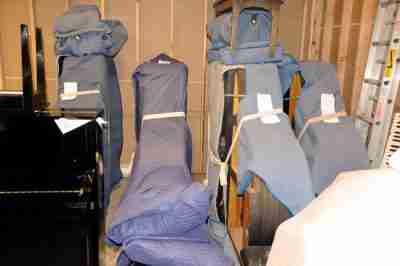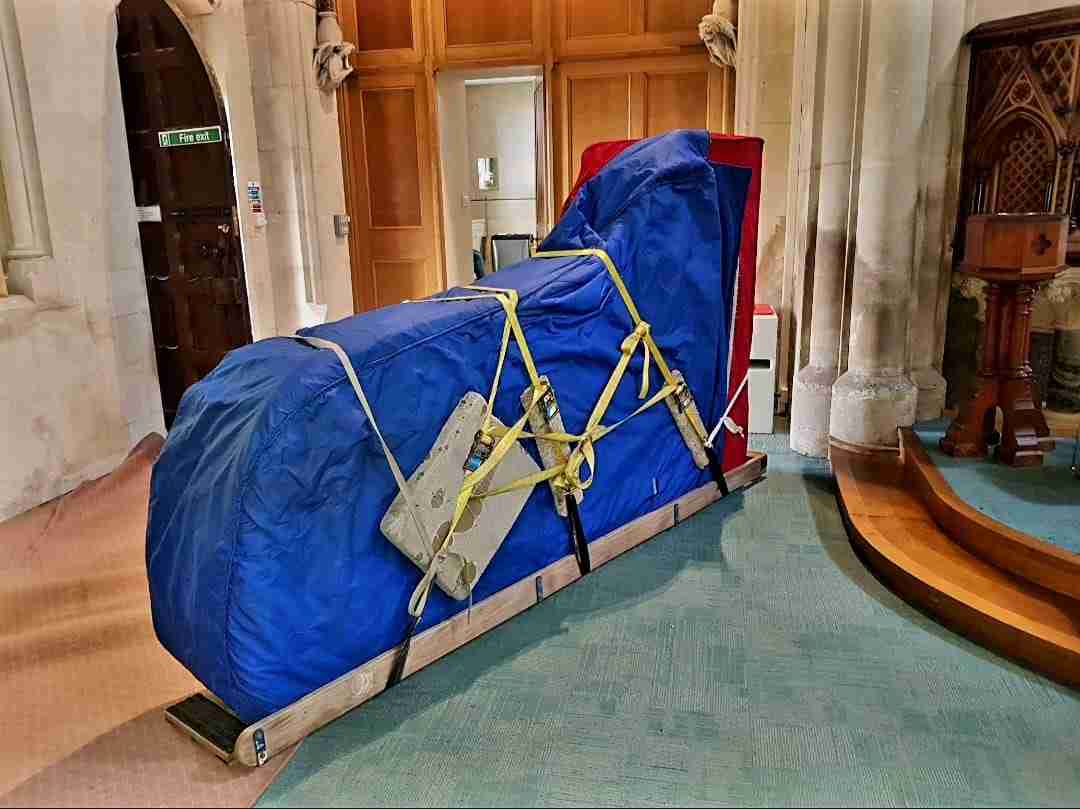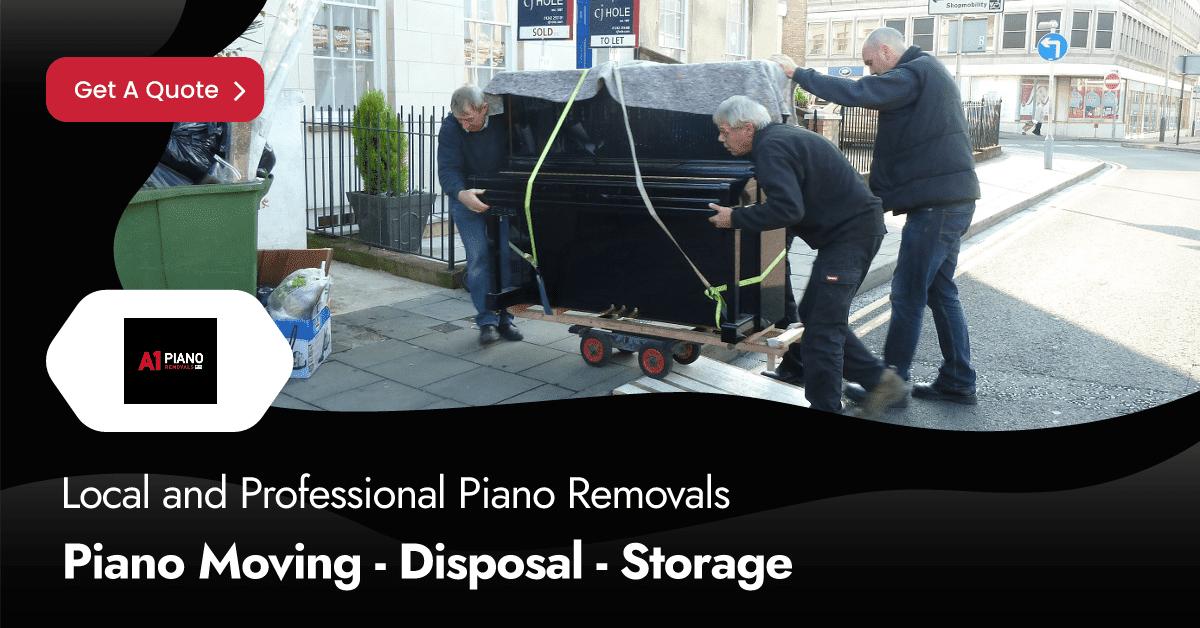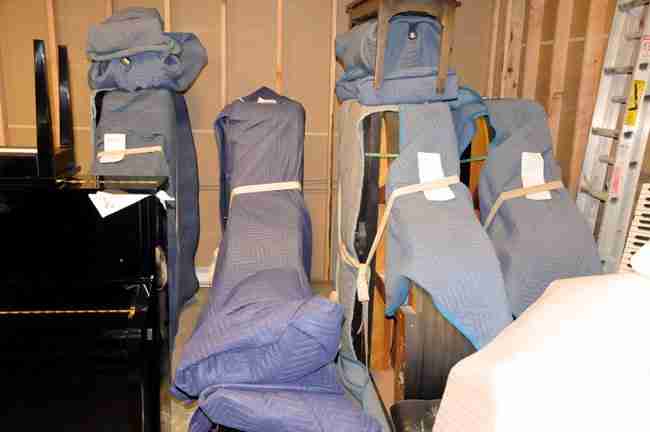Why Temperature-Controlled Storage is Essential for Pianos
The Delicate Nature of Pianos
Pianos are incredibly sensitive to environmental conditions. Made primarily from wood, metal, felt, and glue, these materials expand and contract in response to temperature and humidity changes. Without proper storage conditions, your piano is at risk of:
Wood warping or cracking
Soundboard damage
Tuning instability
Rust or corrosion on strings and metal components
Sticky or misaligned keys
Over time, these issues can lead to expensive repairs or permanent damage. That’s why climate control is not a luxury — it’s a necessity for piano storage.
What Makes Our Storage Facilities Different?
At A1 Piano Removals, we go beyond the basics. Our storage units are purpose-built and maintained to provide optimal conditions for piano preservation.
Consistent Temperature Levels
We maintain our storage environments at a stable temperature of 20–22°C (68–72°F) — the recommended range for piano preservation.
Optimal Humidity Control
Our facility uses advanced dehumidifiers and humidifiers to keep humidity levels between 42–50%, which is ideal to prevent swelling, shrinking, or cracking of wooden components.
Air Circulation & Cleanliness
Clean, dust-free air circulation systems reduce the risk of internal dirt build-up, ensuring your piano stays fresh and functional even during long-term storage.
Our Comprehensive Piano Storage Services Include:
1. Secure, Monitored Storage Units
Your piano will be stored in a private, alarmed unit under 24/7 CCTV surveillance, ensuring maximum protection against theft, fire, and environmental damage.
2. Expert Handling & Transport
Our trained specialists will safely collect and transport your piano to our storage facility using professional-grade equipment and padding to prevent any damage in transit.
3. Custom Protective Wrapping
Each piano is wrapped using custom-fitted padded covers and shock-absorbing materials to prevent dust accumulation and surface scratches during storage.
4. Flexible Storage Plans
We offer short-term and long-term storage options at competitive prices, allowing you to choose a plan that best suits your situation — whether it’s a few weeks or several years.
Who Uses Our Climate-Controlled Piano Storage?
Our services are ideal for:
Private piano owners moving house or going abroad
Schools and universities renovating their music departments
Piano dealers and retailers needing temporary stock storage
Musicians and performers between tours or rehearsals
Collectors and restorers looking for secure storage solutions
No matter your reason, we’ll treat your piano as if it were our own.
Why Choose A1 Piano Removals for Piano Storage?
We’ve earned our reputation as Gloucestershire’s most trusted piano moving and storage experts by offering:
✅ Over 20 Years of Experience
With decades of hands-on expertise, we understand exactly how to care for all types of pianos — from uprights to baby grands and concert grands.
✅ Fully Insured Services
Our team is fully insured for both transport and storage, offering full liability coverage in the unlikely event of an incident.
✅ Specialised Piano Knowledge
Our staff are not just removals experts — they are trained in the mechanics and sensitivities of pianos, ensuring expert handling at every stage.
✅ Transparent, Competitive Pricing
We provide clear quotes with no hidden fees, so you always know exactly what you’re paying for.
✅ Glowing Customer Testimonials
Our 5-star reviews on Google and other platforms highlight our commitment to customer care, precision, and professionalism.
How the Process Works
Step 1: Free Quote & Consultation
Contact us via phone or our online form. We’ll assess your needs and provide a no-obligation quote.
Step 2: Collection & Transportation
We schedule a convenient time to collect your piano. Our experienced team handles it with the utmost care, ensuring it’s securely packed and moved using the correct techniques.
Step 3: Climate-Controlled Storage
Your piano is placed in a designated, temperature- and humidity-controlled unit. We continually monitor conditions to guarantee optimal preservation.
Step 4: Delivery (When You’re Ready)
When you’re ready to retrieve your piano, we’ll arrange for secure delivery to your desired location.
Frequently Asked Questions (FAQs)
How much does piano storage cost?
Pricing varies depending on the size of your piano and the duration of storage. We offer competitive monthly rates, with discounts available for long-term storage.
Can I access my piano during storage?
Yes, access can be arranged by appointment. We kindly ask for 24–48 hours’ notice.
Is your storage facility insured?
Absolutely. We provide full insurance coverage for your piano while it’s in our care.
Do you store all types of pianos?
Yes, we store upright pianos, baby grands, concert grands, electric keyboards, and more.
Serving Gloucestershire & Surrounding Areas
Our piano storage services are available across Gloucestershire, including Cheltenham, Gloucester, Stroud, Cirencester, and beyond. Whether you’re based locally or elsewhere in the UK, we’re happy to help arrange professional transport and storage for your instrument.
Get in Touch Today
Don’t leave your piano at the mercy of fluctuating temperatures or dusty garages. Trust A1 Piano Removals for safe, secure, and fully climate-controlled storage.
📞 Call Us: 07787 135541
📧 Email: [email protected]
🌐 Free Online Quote: Request a Quote
Secure Your Piano’s Future — Store It Safely with A1
When it comes to protecting your piano, don’t compromise. Choose A1 Piano Removals — the trusted name in climate-controlled piano storage across Gloucestershire and the South West.







